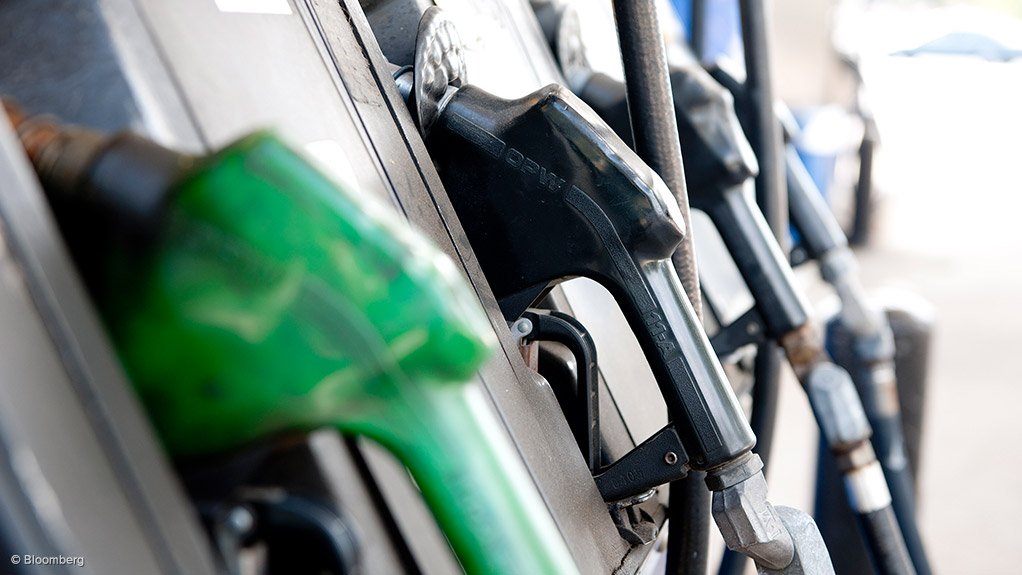Energy Minister Jeff Radebe has resisted the temptation of again intervening to freeze fuel-price increases, confirming on Monday that the price of petrol and diesel will surge sharply at midnight on October 3.
With both the rand/dollar exchange rate and oil prices moving against South Africa during September, the following adjustments have been announced for October:
- 93 Octane, unleaded petrol will rise by 99.00 c/l.
- 95 Octane unleaded petrol will increase by 100.00 c/l.
- Diesel (0.05% sulphur) rises by 124.00 c/l.
- Diesel (0.005% sulphur) will surge by 124.00 c/l.
- The wholesale price of illuminating paraffin rises 104.00 c/l.
- The Single Maximum National Retail Price illuminating paraffin surges by 139.00 c/l.
- And the maximum liquid petroleum gas retail price increases by 179.00 c/kg.
“The current fuel price adjustments are due mainly to the international factors, namely, the weaker rand and higher crude oil prices. Geopolitical tensions are having a very negative impact on crude oil prices and consequently refined product prices globally,” the Department of Energy said in a statement.
As a result of the hikes, the price of 95 Octane unleaded petrol in Gauteng will surge to a record R17.08/l, while it will rise to R16.49/l at the coast. The price of 0.05% sulphur diesel in Gauteng will rise to R15.64/l and R15.16/l at the coast.
In September, Radebe surprised the market, and the liquid fuels industry, when he decided to breach the rules of South Africa's well-established pricing framework in order to facilitate the price freeze.
Government insisted, however, that the intervention would not be repeated and was designed primarily to offer relief to motorists, who had been forced to absorb several large fuel hikes since the start of 2018.
In the event, fuel prices rose by only 4.9c/l in September to accommodate an increase in the retail margin for petrol to in line with a wage agreement for forecourt staff.
Ahead of the intervention it was anticipated that fuel prices would rise by some 25c/l on September 5 to accommodate a R550-million-plus under recovery in August, which arose as a result of increases to the oil price and a weakening in the rand.
To pay for the freeze, government leaned on the Slate Levy Mechanism (SLM) Trust Account, which had surplus resources, despite the fact that the actual SLM has been held as 0c/l for some time and has also not been increased in October.
The self-adjusting SLM was implemented with effect from January 7 2009 to manage a negative balance in the cumulative over/under recovery. The levy is only applicable on petrol and diesel if the cumulative under recovery on the slate balance is more than R250-million.
HIGH PRICES TO PERSIST
South African Petroleum Industry Association (Sapia) executive director Avhapfani Tshifularo said the organisation supported the Minister’s decision to "apply the established rules on fuel pricing as these continue to provide certainty to consumers, investors and the industry as a whole".
He cautioned that high fuel prices were likely to persist for some time, owing to higher global oil prices, which could rise further as a result of looming US sanctions against Iran.
"Sapia is very aware of the strain higher fuel prices place on consumers and the economy. So now is the time for all fuel industry stakeholders – business, government and civil society – to work together to increase public understanding of fuel pricing and explore how we can save on fuel costs. We also look forward to engaging with all industry stakeholders to find ways to better understand and manage the impact of a higher oil price environment," Tshifularo said in a statement.
EMAIL THIS ARTICLE SAVE THIS ARTICLE ARTICLE ENQUIRY
To subscribe email subscriptions@creamermedia.co.za or click here
To advertise email advertising@creamermedia.co.za or click here











